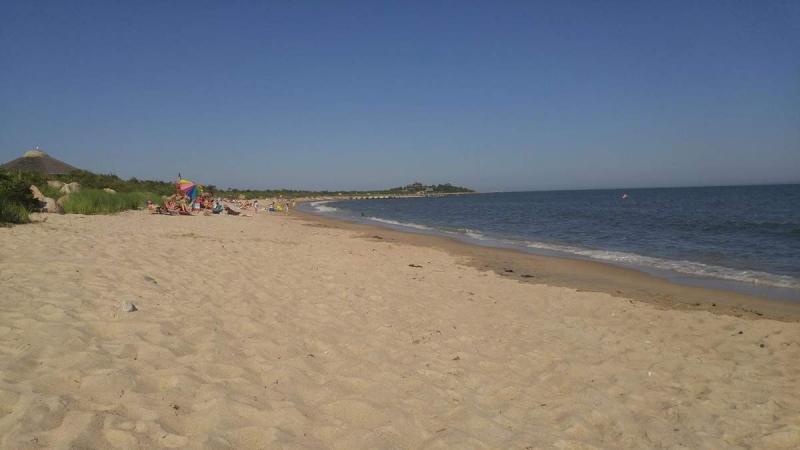Inmates to take over Round Hill Beach raking after machinery suspension
A solution has been found for the machine raking issue at Round Hill Beach, but the implementation of an official beach management plan is now at a standstill after the Parks Department was notified of new information about bird nesting.
Parks and Recreation Director Tim Lancaster announced at the Parks Board’s June 19 meeting the Bristol County Sheriff's Office has agreed to let inmates hand rake the beach from 6:30 to 8:30 a.m. a few days a week.
Inmates will rake the beach by hand and put any hazardous material on a tarp. Once they are finished, the tarps will be brought to the nearest pathway, where the machine will collect all the seaweed and other items.
This comes after a March meeting where the Parks Board announced machine raking at the beach would be suspended following an anonymous complaint filed to the state Department of Environmental Protection, alleging the department’s use of the machine violated state environmental protection regulations.
With the beach season underway, Lancaster noted the beach has been clean so far.
“Right now, the beach happens to be perfectly clean,” Lancaster said. “I’m not sure why something’s on our side.”
Fully reinstating the use of machine raking would have required the filing of a notice of intent with the Department of Environmental Protection, necessitating the creation of an official beach management plan under guidance from the Division of Fisheries and Wildlife.
The department debated creating the plan, but a key sticking point was whether endangered piping plovers still nested in the area. If piping plovers are discovered to be nesting, their nesting area must be roped off to protect against interference. It is against the law for humans to cross into the roped off areas.
After talking to Jonathan Regosin from the Massachusetts Division of Fisheries and Wildlife, it was discovered piping plovers haven’t nested in the area for three years. The new information led Lancaster to send a draft plan outlining the department’s current procedures and regulations to state officials.
The current procedures rely on Mass Audubon staffers to handle bird monitoring. Staffers are given access to the beach for monitoring and educational purposes.
The issue of piping plovers was a key point brought up during debate on the Round Hill salt marsh restoration project. That project, which would have been funded by the state and federal government, would have restored a salt marsh converted into an airstrip by Ned Green in the 1920s. It was cancelled amid controversy.
“So what’s kind of concerning and odd about this thing is we went from — and I couldn’t figure it out — we went from, during the marsh restoration project, the town was going to be required to fund Mass Audubon for monitoring the birds that at that time everyone knew weren’t there but us,” Lancaster said. “We knew they weren’t there because we hadn’t seen one, but everyone told us the birds were there.”
Lancaster sent the letter with his draft in May and has received no email back.
Further complicating matters, the department might have had to limit machine raking to only a small strip of the beach even with a beach management plan. State environmental protection laws only permit the process a certain distance away from dunes and the intertidal zone.
Lancaster said the area left would be too narrow, and he was not sure if the equipment would fit down it.
“We [would have] locked ourselves into a bird plan for raking under the DEP program that we couldn’t physically rake the beach with a machine anyway… all we would be doing is giving someone down the road the option to rope off access to Round Hill,” Lancaster said.













